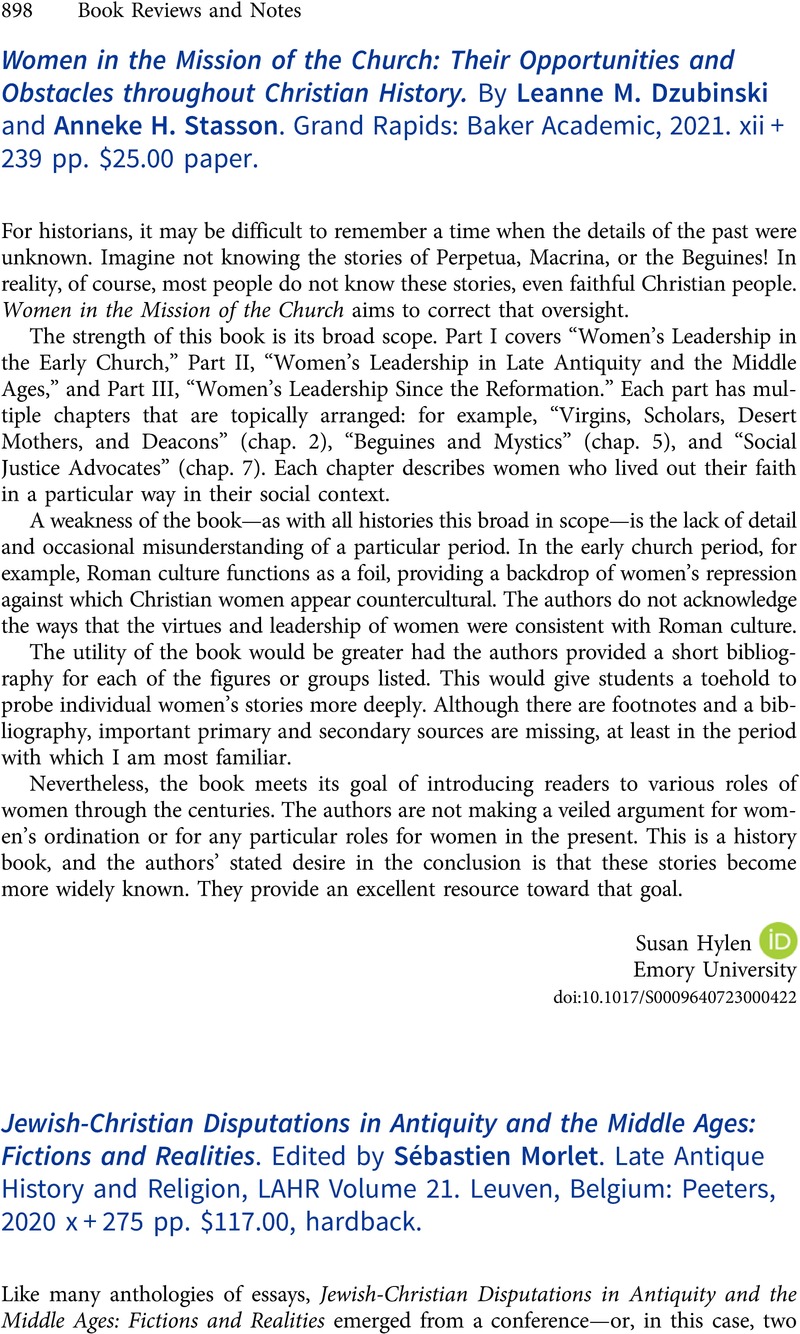No CrossRef data available.
Article contents
Jewish-Christian Disputations in Antiquity and the Middle Ages: Fictions and Realities. Edited by Sébastien Morlet. Late Antique History and Religion, LAHR Volume 21. Leuven, Belgium: Peeters, 2020 x + 275 pp. $117.00, hardback.
Review products
Jewish-Christian Disputations in Antiquity and the Middle Ages: Fictions and Realities. Edited by Sébastien Morlet. Late Antique History and Religion, LAHR Volume 21. Leuven, Belgium: Peeters, 2020 x + 275 pp. $117.00, hardback.
Published online by Cambridge University Press: 03 May 2023
Abstract
An abstract is not available for this content so a preview has been provided. Please use the Get access link above for information on how to access this content.

- Type
- Book Reviews and Notes
- Information
- Copyright
- Copyright © The Author(s), 2023. Published by Cambridge University Press on behalf of American Society of Church History


